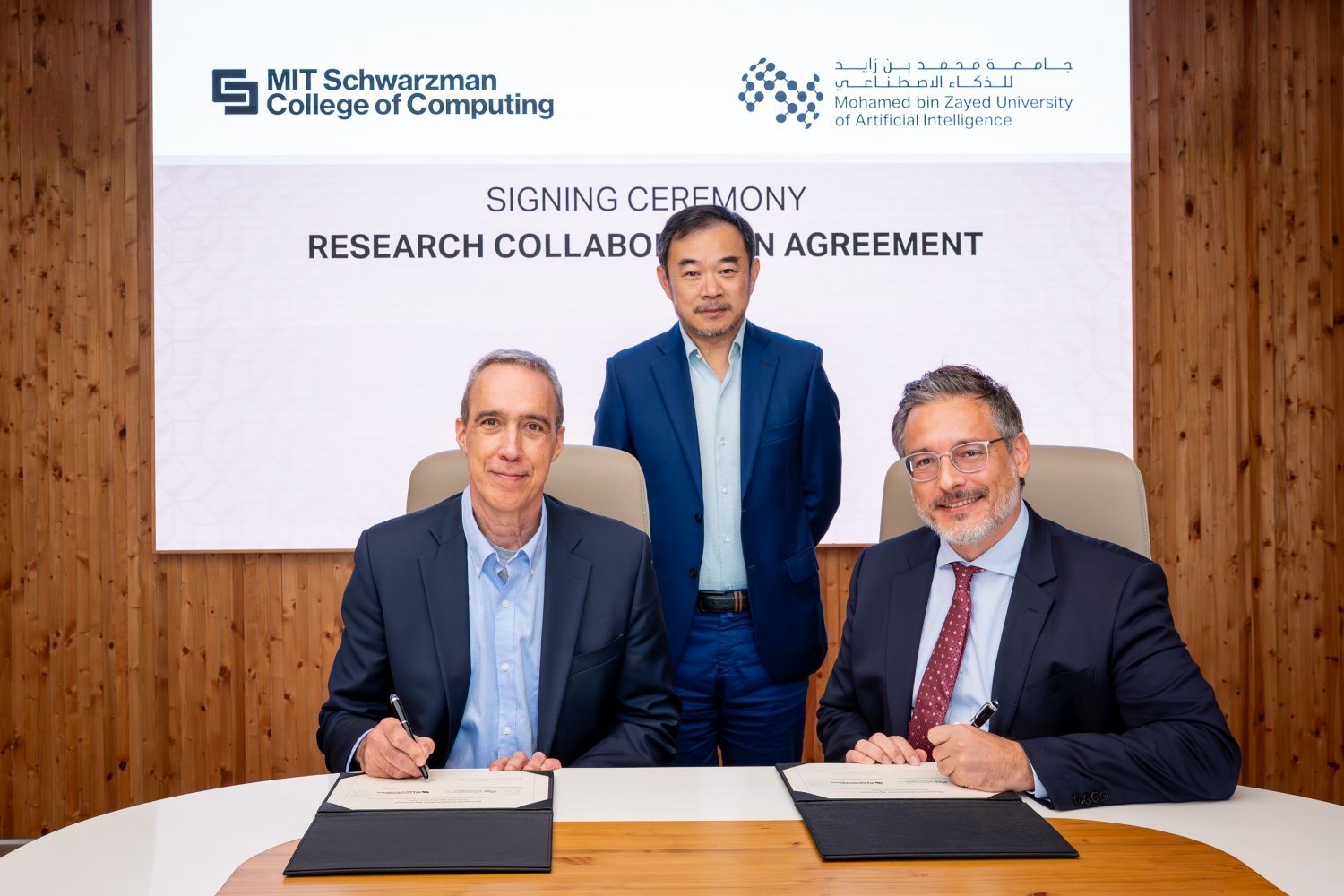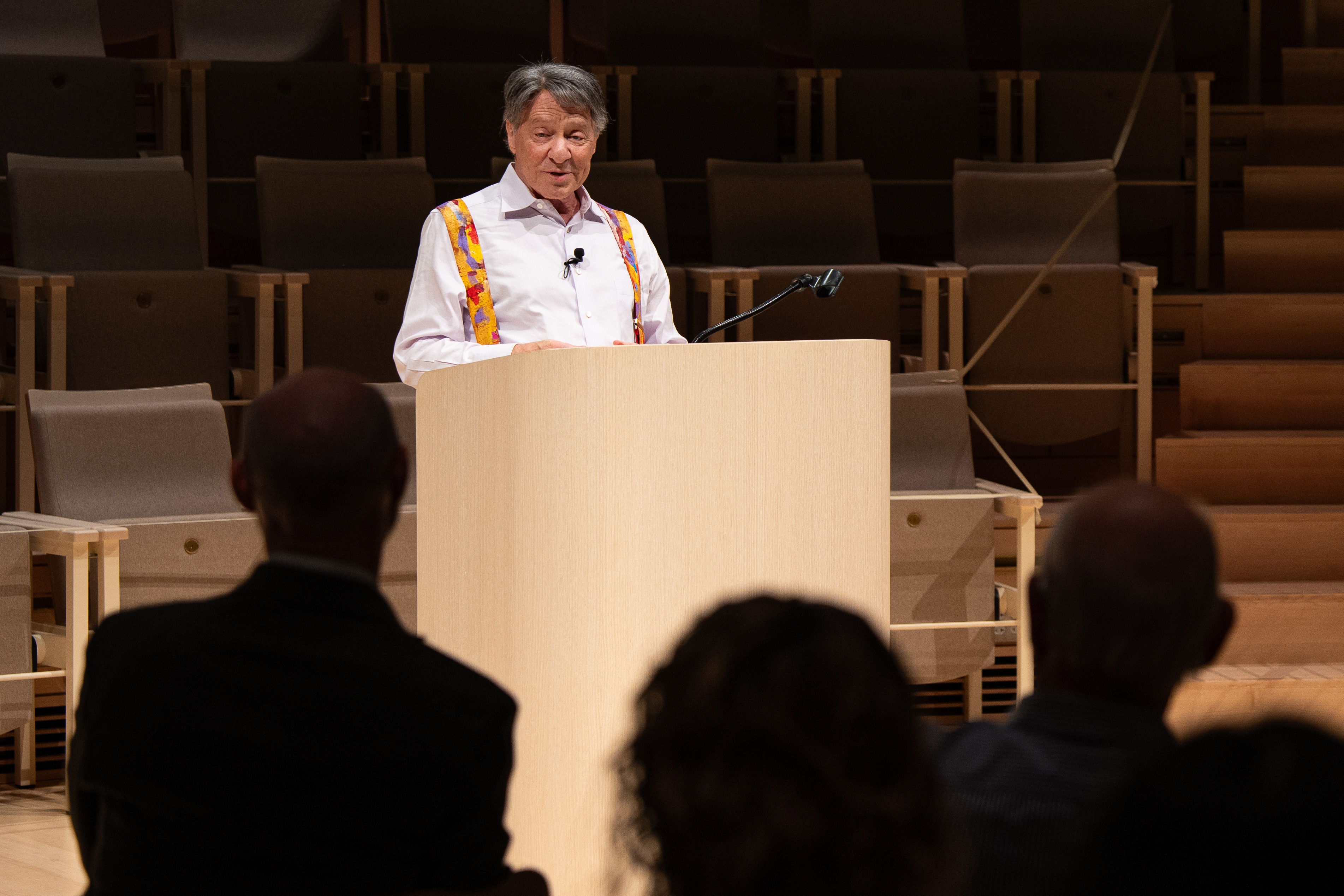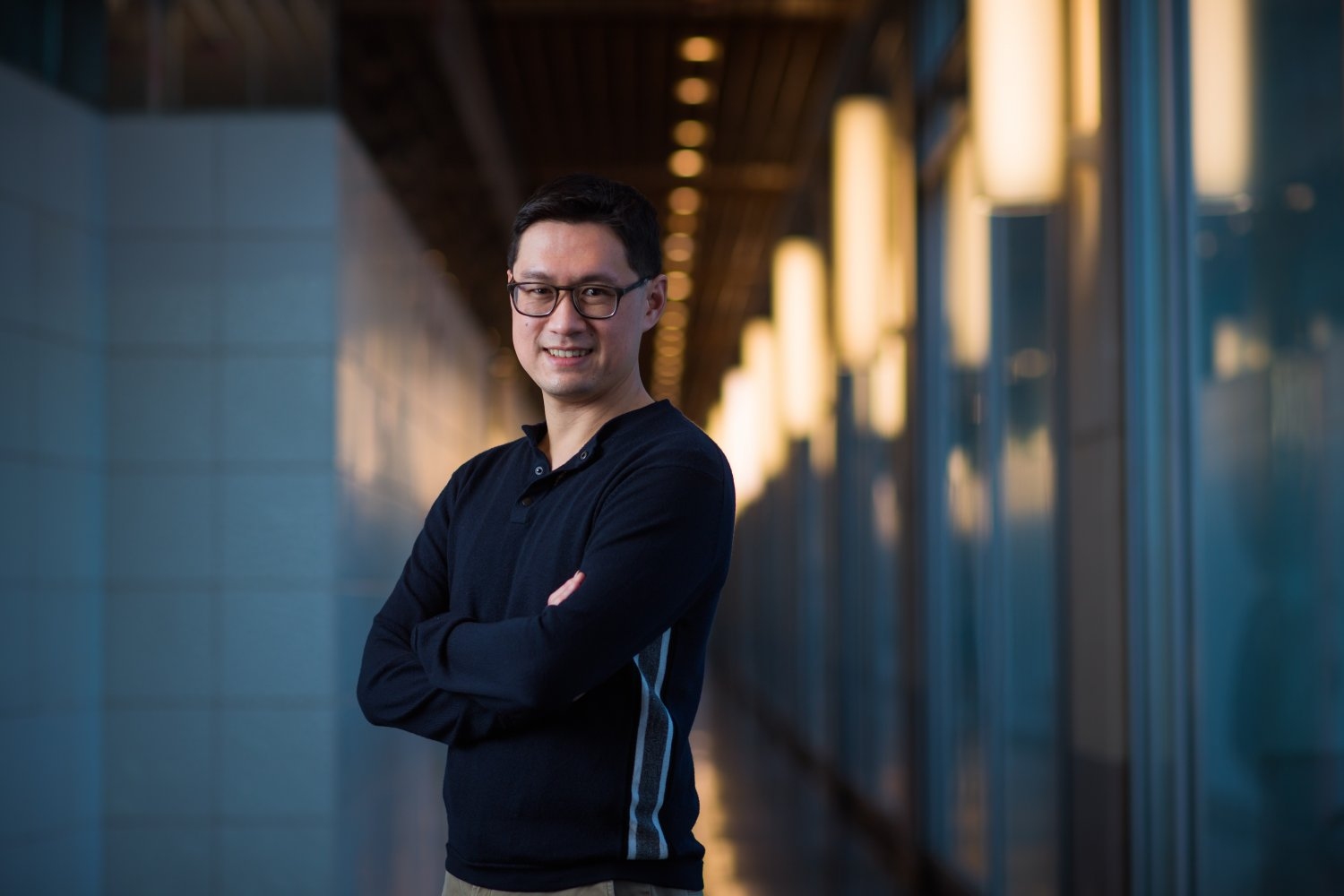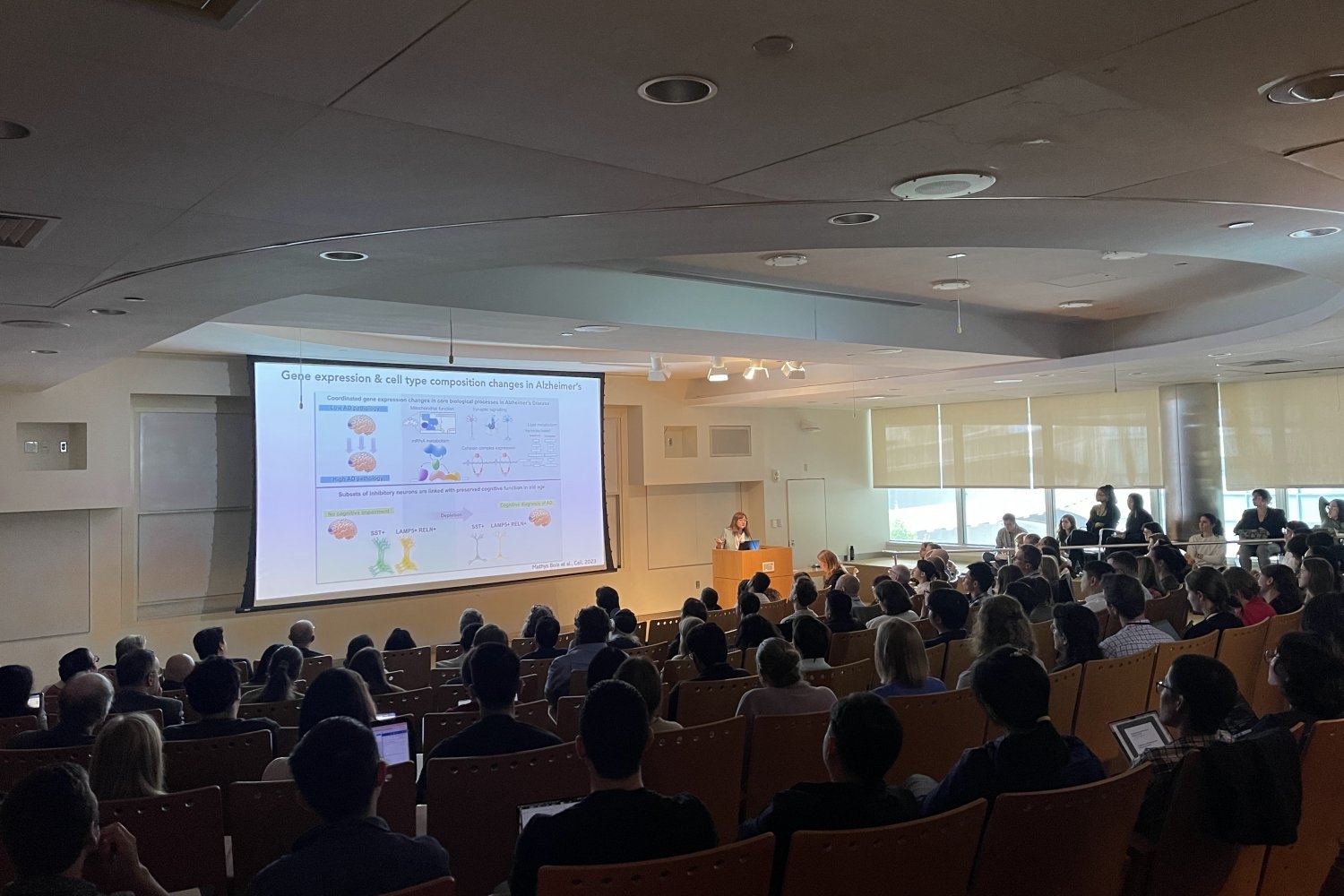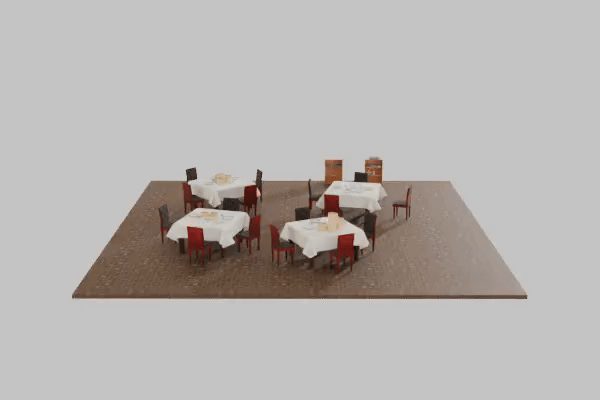MIT Schwarzman College of Computing and MBZUAI launch international collaboration to shape the future of AI
The MIT Schwarzman College of Computing and the Mohamed bin Zayed University of Artificial Intelligence (MBZUAI) recently celebrated the launch of the MIT–MBZUAI Collaborative Research Program, a new effort to strengthen the building blocks of artificial intelligence and accelerate its use in pressing scientific and societal challenges.
Under the five-year agreement, faculty, students, and research staff from both institutions will collaborate on fundamental research projects to advance the technological foundations of AI and its applications in three core areas: scientific discovery, human thriving, and the health of the planet.
“Artificial intelligence is transforming nearly every aspect of human endeavor. MIT’s leadership in AI is greatly enriched through collaborations with leading academic institutions in the U.S. and around the world,” says Dan Huttenlocher, dean of the MIT Schwarzman College of Computing and the Henry Ellis Warren Professor of Electrical Engineering and Computer Science. “Our collaboration with MBZUAI reflects a shared commitment to advancing AI in ways that are responsible, inclusive, and globally impactful. Together, we can explore new horizons in AI and bring broad benefits to society.”
“This agreement will unite the efforts of researchers at two world-class institutions to advance frontier AI research across scientific discovery, human thriving, and the health of the planet. By combining MBZUAI’s focus on foundational models and real-world deployment with MIT’s depth in computing and interdisciplinary innovation, we are creating a transcontinental bridge for discovery. Together, we will not only expand the boundaries of AI science, but also ensure that these breakthroughs are pursued responsibly and applied where they matter most — improving human health, enabling intelligent robotics, and driving sustainable AI at scale,” says Eric Xing, president and university professor at MBZUAI.
Each institution has appointed an academic director to oversee the program on its campus. At MIT, Philip Isola, the Class of 1948 Career Development Professor in the Department of Electrical Engineering and Computer Science, will serve as program lead. At MBZUAI, Le Song, professor of machine learning, will take on the role.
Supported by MBZUAI — the first university dedicated entirely to advancing science through AI, and based in Abu Dhabi, U.A.E. — the collaboration will fund a number of joint research projects per year. The findings will be openly publishable, and each project will be led by a principal investigator from MIT and one from MBZUAI, with project selections made by a steering committee composed of representatives from both institutions.
Latest MIT News
- Ray Kurzweil ’70 reinforces his optimism in tech progressReceiving the Robert A. Muh award, the technologist and author heralded a bright future for AI, breakthroughs in longevity, and more.
- Gene-Wei Li named associate head of the Department of BiologyThe associate professor aims to help the department continue to be a worldwide leader in education, biological sciences, and fundamental research.
- Immune-informed brain aging research offers new treatment possibilities, speakers saySpeakers at MIT’s Aging Brain Initiative symposium described how immune system factors during aging contribute to Alzheimer’s, Parkinson’s and other conditions. The field is leveraging that knowledge to develop new therapies.
- Riccardo Comin, two MIT alumni named 2025 Moore Experimental Physics InvestigatorsMIT physicist seeks to use award to study magnetoelectric multiferroics that could lead to energy-efficient storage devices.
- How to reduce greenhouse gas emissions from ammonia productionProposed system would combine two kinds of plants, creating greater efficiency and lowering costs while curbing climate-changing emissions.
- Using generative AI to diversify virtual training grounds for robotsNew tool from MIT CSAIL creates realistic virtual kitchens and living rooms where simulated robots can interact with models of real-world objects, scaling up training data for robot foundation models.



